20 Favorite Science of Reading PD books and trainings
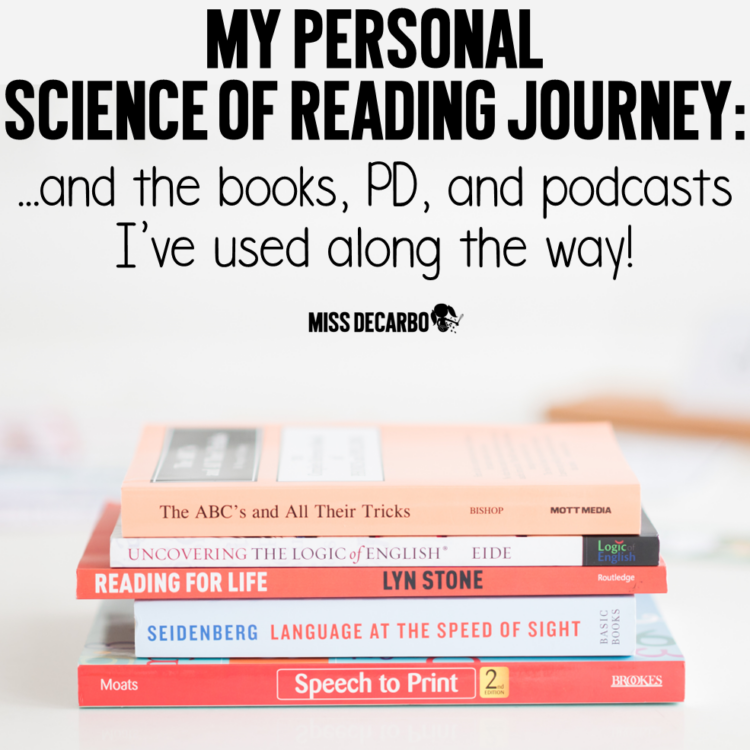
For as long as I can remember, I have always devoured professional books about learning, teaching, and research. Give me a great PD book and a hot cup of coffee, and I’m set! Over the past two years, I have taken on a huge personal journey in my educational career – my own journey into understanding the science of reading. I wanted to devote a blog post on my website that shares my personal journey- how I got here, why, and what’s next. Within this blog post, I’ll also be sharing a list of my favorite science of reading PD books, training courses, and podcasts that I’ve used to help me learn and grow as a reading teacher. I hope you find my story and list of science of reading PD books and trainings helpful.
My Science of Reading Journey: background
To share the path I’ve been on as I continue to dig into the science of reading, let’s go back to my college years. Balanced literacy was “trending”. It was, to this day, my knowledge of balanced literacy and the three-cueing system that landed me my first teaching job. I remember rattling off the words syntactic, semantic, and visual as easily and as beautifully as someone who may have been in their 20th year of teaching. After all, my college had set me up for success as a balanced literacy teacher. I had taken courses in guided reading. Fountas and Pinnell was assigned as my textbooks. I had even spent an entire field experience that had been solely devoted to guided reading instruction. I was confident in balanced literacy and ready to teach kids how to read.
I share this background because it was what MOST of us were taught when we learned how to be a teacher. I also share this so that you understand that it was nothing you or I did wrong- we didn’t know. We were taught that using prompts like, “Can the picture help you?” or “What word would fit here?” was the correct way to teach students how to read. Why? Because the decades of research into the science of reading never reached our textbooks. It was never printed in our curriculum manuals that were given to us by our districts. It was not focused on in the PD trainings, workshops, and courses that our universities and public school systems sent us to. You know that saying, “Know better, Do better?” The reality is that you can’t do better until you know better. And back then, we didn’t know.
My Science of Reading Journey- plot twist
Even though I was taught with a balanced literacy approach to reading instruction, I’ve always been a huge advocate for phonics. So when I noticed a ton of my students were struggling to read, I started to focus on it heavily. I created a massive decoding intervention and assessment bundle to help my students learn how to sound out words. And guess what? It worked. The problem was, the teaching world was still heavily immersed in all things guided reading, F&P, and leveled books. I felt like I was consonantly on a teeter totter. What I was doing at the small group table with phonics instruction was working, but it was being counterproductive because my school was using the Reading Units of Study manuals from Lucy Calkins, and I was supposed to teach mini-lessons that had me covering up words with sticky notes and setting kids loose to “read” independently for 30 minutes a day.
I remember feeling so conflicted about it. On one hand, we were getting training from what was supposed to be some of the best reading PD around, right?! On the other hand, none of it sat right with my teammate and I. Where was the explicit phonics instruction? Why are these first lessons in first grade teaching my students how to “read all their books, and then read them back again” when they can’t even read words yet?! For almost two years, I wasted 45 minutes of instructional time as I taught those mini-lessons and then attempted to reverse the damage at the small group table. Make no mistake, I gave the reading workshop experience my best effort. You can see the evidence in an anchor chart from my classroom below.

Looking at number 4 and number 6 of the poster above makes me cringe. “Think about what kind of word would fit.” Eek! It should have said things like, “Tap out each grapheme,” and “Blend the sounds together.” (I have since created reading decoding strategy cards and posters that are aligned to the science of reading, and no longer make me cringe!)
my Science of Reading journey: PROGRESS!
It was a little over two years ago when I started to dig into books and PD that aligned to the science of reading. At first, I denied what the science of reading was telling me. I criticized it. I did that because it was easier to criticize it than it was to admit that I had a LOT of changes to make in my instruction. Change is hard, there’s not doubt about it. But when we can take a deep breath and be open-minded about change, some pretty wonderful things start to happen!
So, with my new open-minded attitude, I signed myself up for the LETRS course, and it was a game-changer for me as a teacher. I read TONS of science of reading PD books (and I continue to do so). I dug into articles, webinars, and research into dyslexia. I got trained at the Associate Level by the Orton Gillingham Academy, and I am currently undergoing a year-long practicum experience to be certified by the academy.

The biggest part of my journey has by far been my shift from the classroom to the role of a literacy coach in my district. I am now so passionate about the instructional changes that teachers are able to make using brain research, that I knew I wanted to help more than just my classroom of students. Leaving my first grade classroom was scary, but at the same time, it felt like the perfect time to be able to influence not just 20 students, but entire classrooms of students and teachers! Helping other teachers make the shift from balanced to structured literacy has given me a new sense of passion and excitement for teaching and literacy!
I now get to use what I’ve learned and what I continue to learn about the science of reading to model reading and writing lessons, coach teachers through using data to drive instructional decisions, promote research-based strategies and interventions throughout our entire building, and so much more. I run several structured literacy groups throughout the week, and I work with students from preschool through fifth grade. I am excited and passionate about continuing my journey as a structured literacy teacher with you, too! You can come with me in my journey by following me on Instagram @missdecarbo or by joining my email list.
My Current SOR Book recommendations
As promised, here is a list of links to the science of reading PD books that I have used throughout my science of literacy journey. They are in no particular order, but I would highly recommend grabbing a copy of the first four books, as those have been my favorites!
(This list includes Amazon Affiliate links for your convenience, so that you can find and reference the books easily and quickly. This just means that my blog receives a tiny compensation if you click on these links- at no extra charge to you.)
- Language at the Speed of Sight by Mark Seidenberg
- Reading for Life: High Quality Literacy Instruction for All by Lyn Stone
- From Speech to Print by Louisa Cook Moats
- Uncovering the Logic of English: A Common-Sense Approach to Reading, Spelling, and Literacy by Denise Eide
- A Fresh Look at Phonics by Wiley W. Blevins
- The Writing Revolution by Judith Hochman and Natalie Wexler
- Structured Literacy Interventions Edited by Louise Spear-Swerling
- The Reading Comprehension Blueprint by Nancy Hennessey and Louisa Cook Moats
- Proust and the Squid by Maryanne Wolf
- The ABC’s and All Their Tricks by Margaret M. Bishop
- Reading in the Brain: The New Science of How We Read by Stanislas Dehaene
SOR Aligned Professional Development
There are a lot of wonderful courses, webinars, and podcasts out there that. The following is a list of the PD trainings I have personally participated in and enjoyed! I hope you find these useful if you are looking for some places to start your own journey into structured literacy instruction.
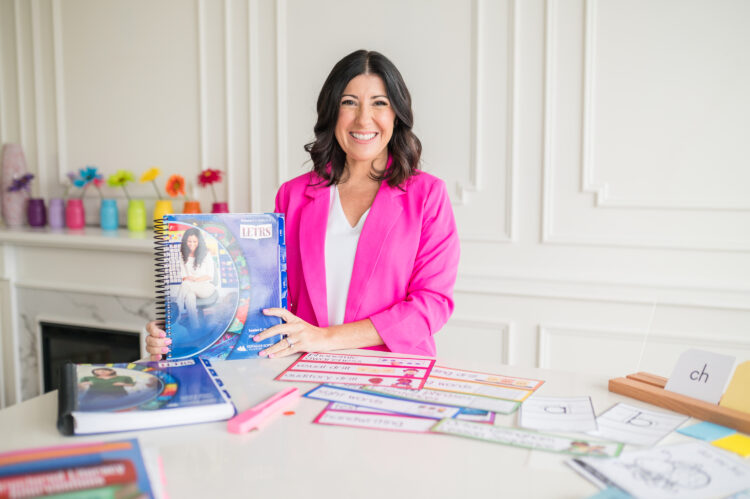
- LETRS
- Top 10 Tools (I have not taken the online course, but had live training from Dr. Deb Glaser as part of a county grant that our district received.) The Top 10 Tools course is a great option if you’re looking for a more cost-effective course than LETRS.
- Orton Gillingham Academy – My training and practicum has been with Laurie Leason. Associate Level, Option B
- The Writing Revolution Training Course
- Sold a Story Podcast by Emily Hanford
- The Science of Reading Podcast by Amplify
- Teaching, Reading, and Learning Podcast by The Reading League
- University of Florida Literacy Institute (UFLI)
- Really Great Reading Webinars
An Exciting Future
Thank you so much for letting me share my journey into the science of reading with you! My journey is similar to so many other teachers today- perhaps even to yours! The biggest thing I hope to teach people is that as teachers, we are ALWAYS learning and growing. Having used some of the strategies in our past that we now know are not effective doesn’t make us bad teachers. It just means we have room to continue to improve and refine our craft, as well as reach the many students in our present and our future.
My science of reading journey is far from over. I am making mistakes daily, learning new things daily, and revising and reflecting my instructional techniques on a daily basis. In fact, I wouldn’t want it any other way! When we continue to learn, grow, and know better – we can DO better for our students, their families, and our schools!
If you’re interested in sharing this post, as well as the list of PD books and trainings I’ve shared, feel free to PIN the following image and share it with your colleagues and peers.
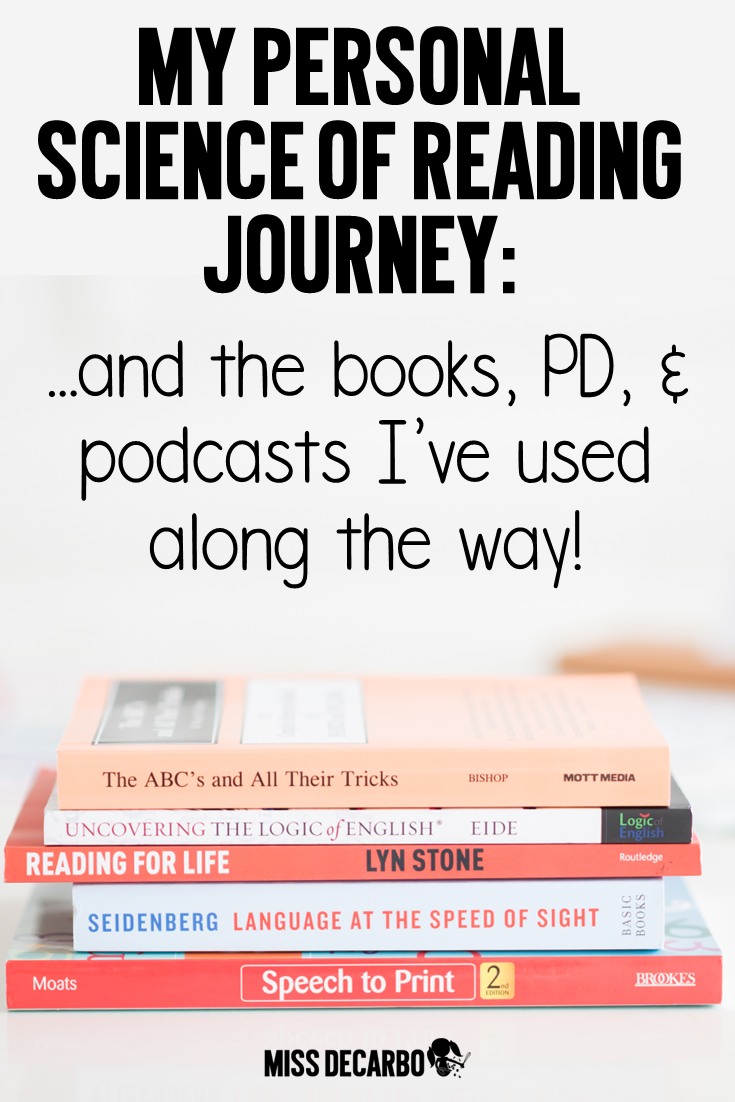

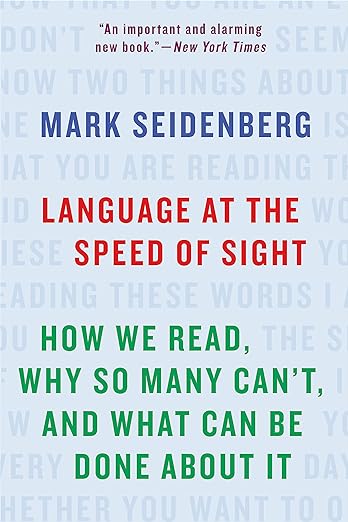
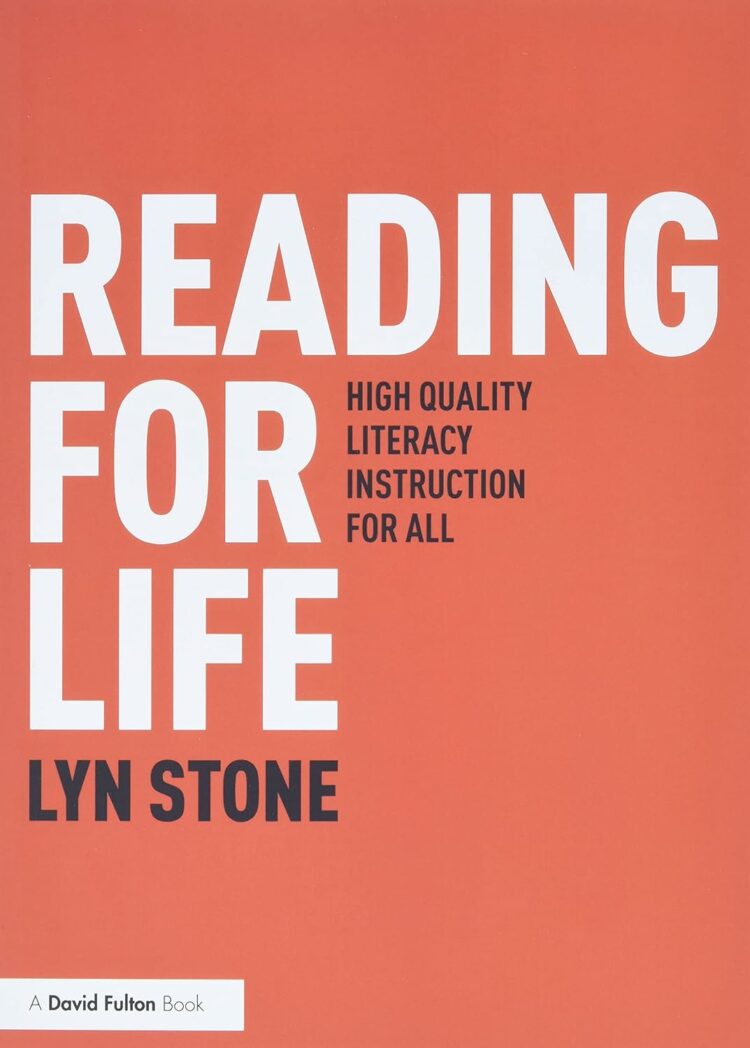
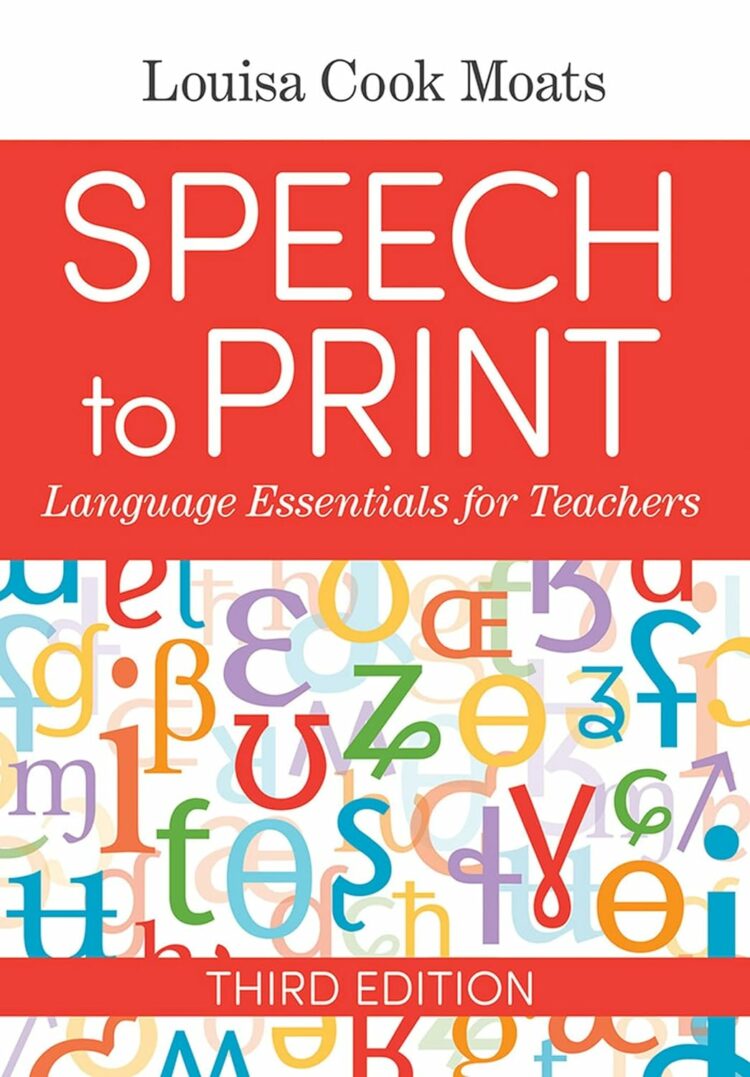
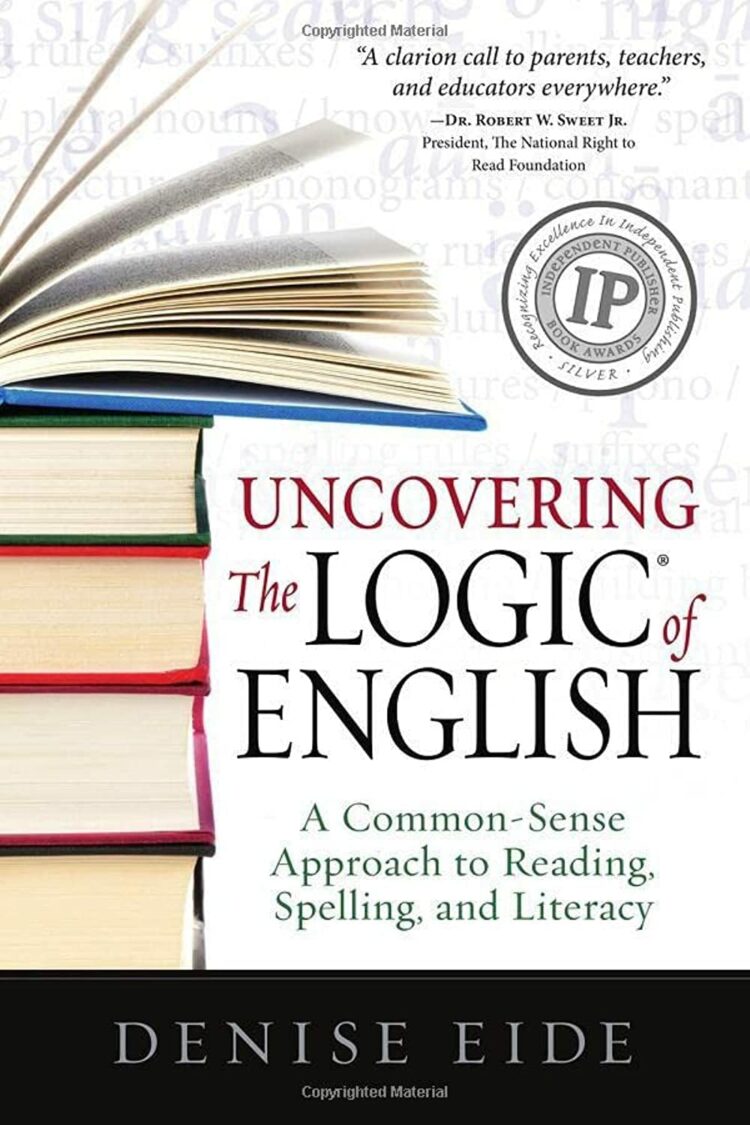
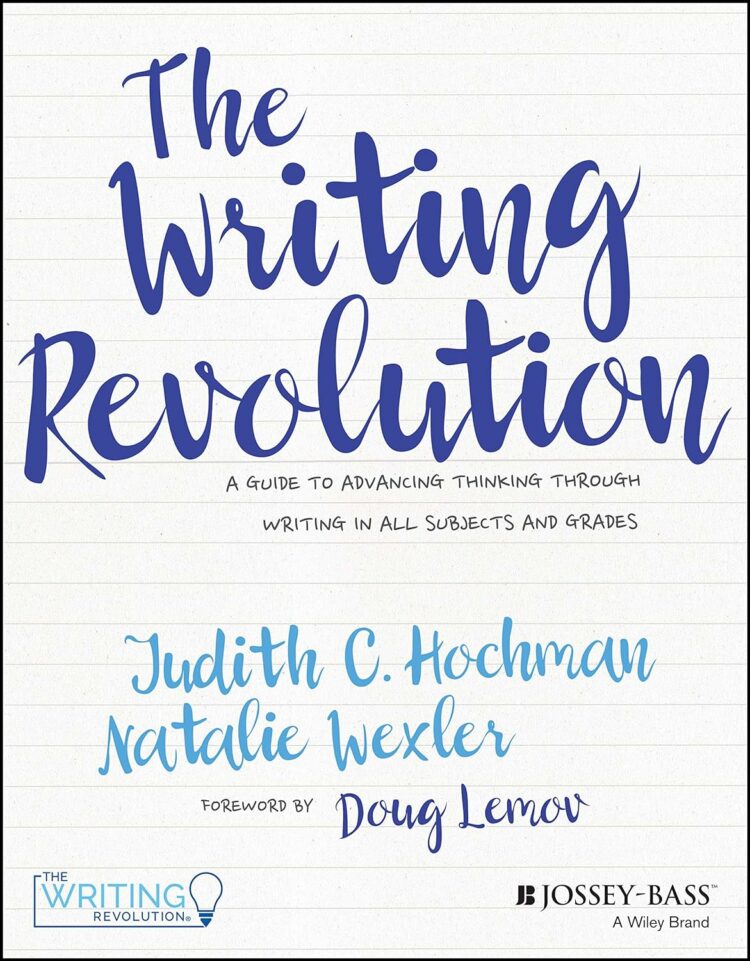
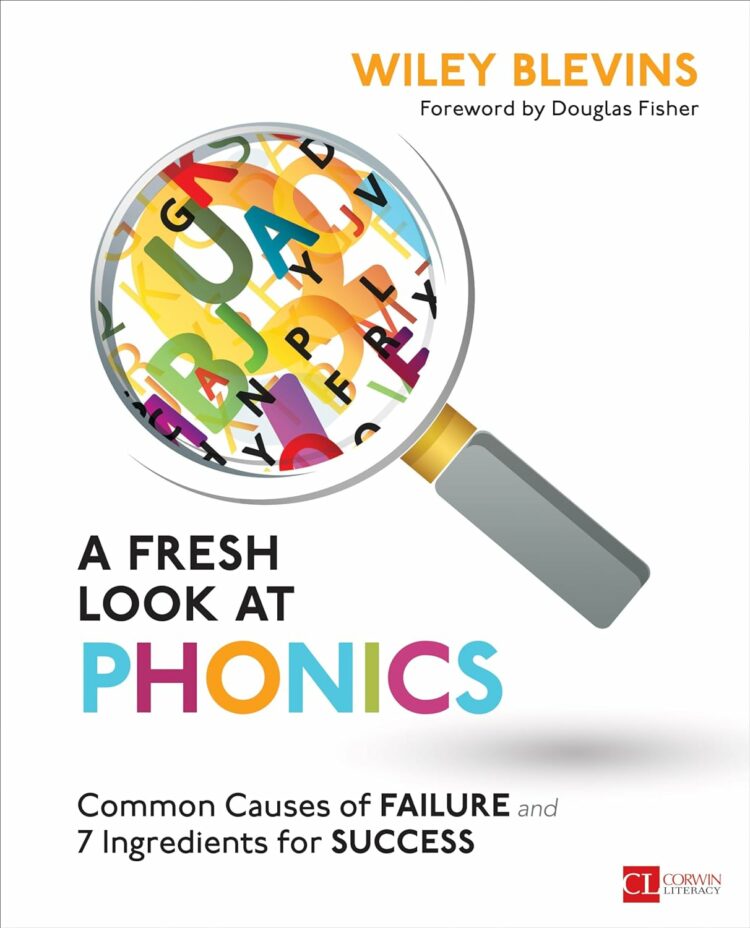
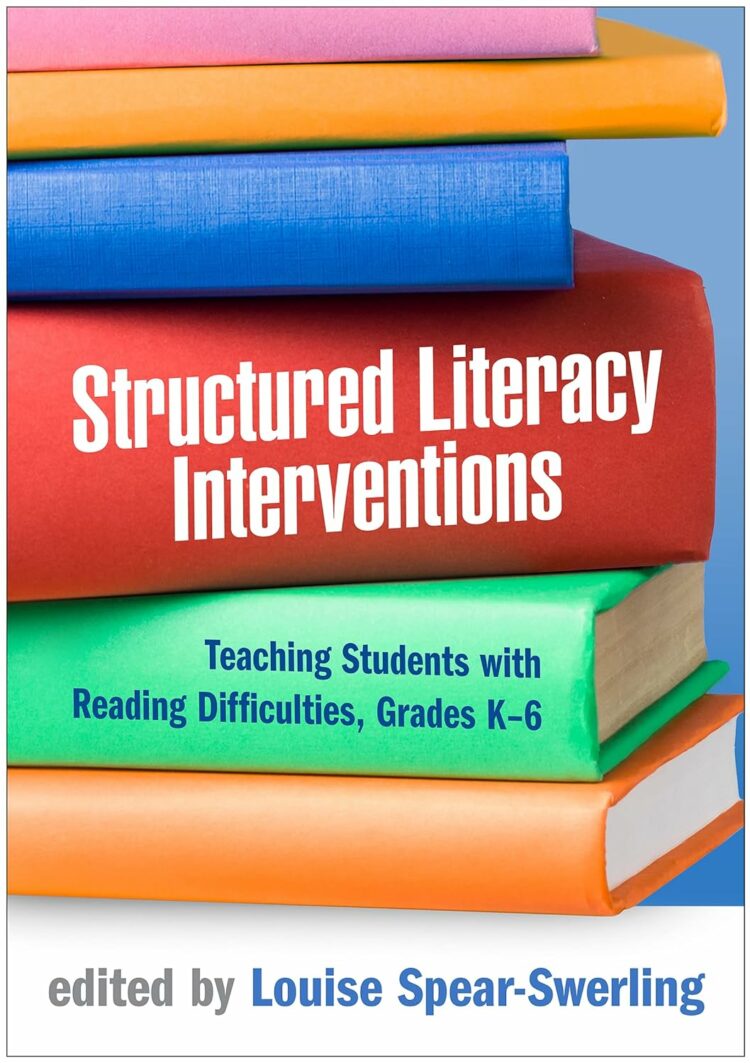
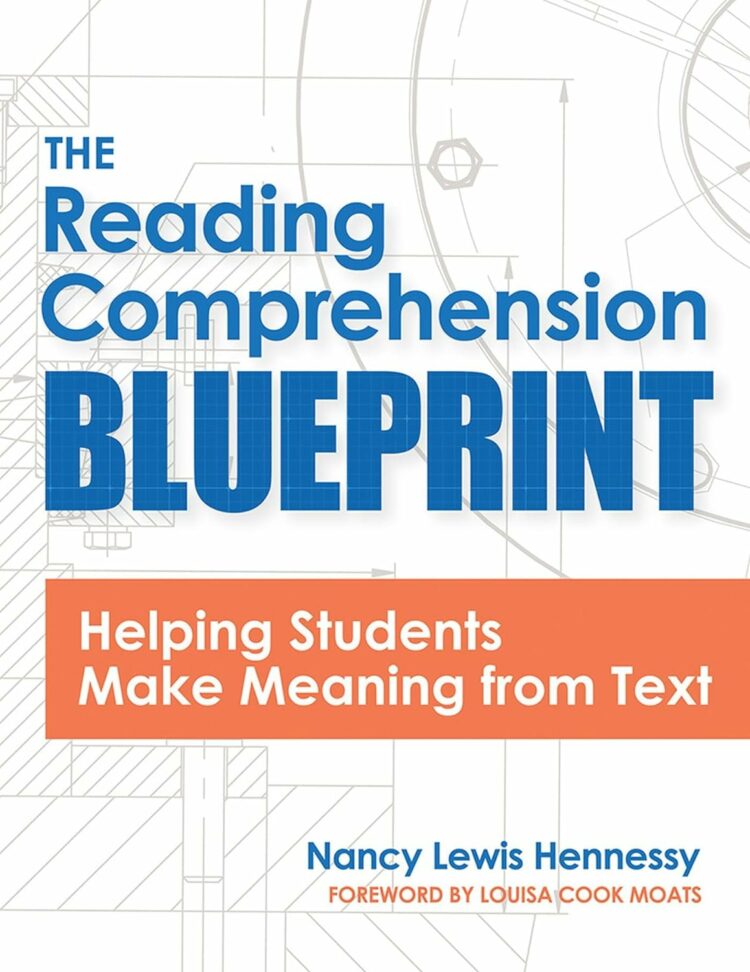
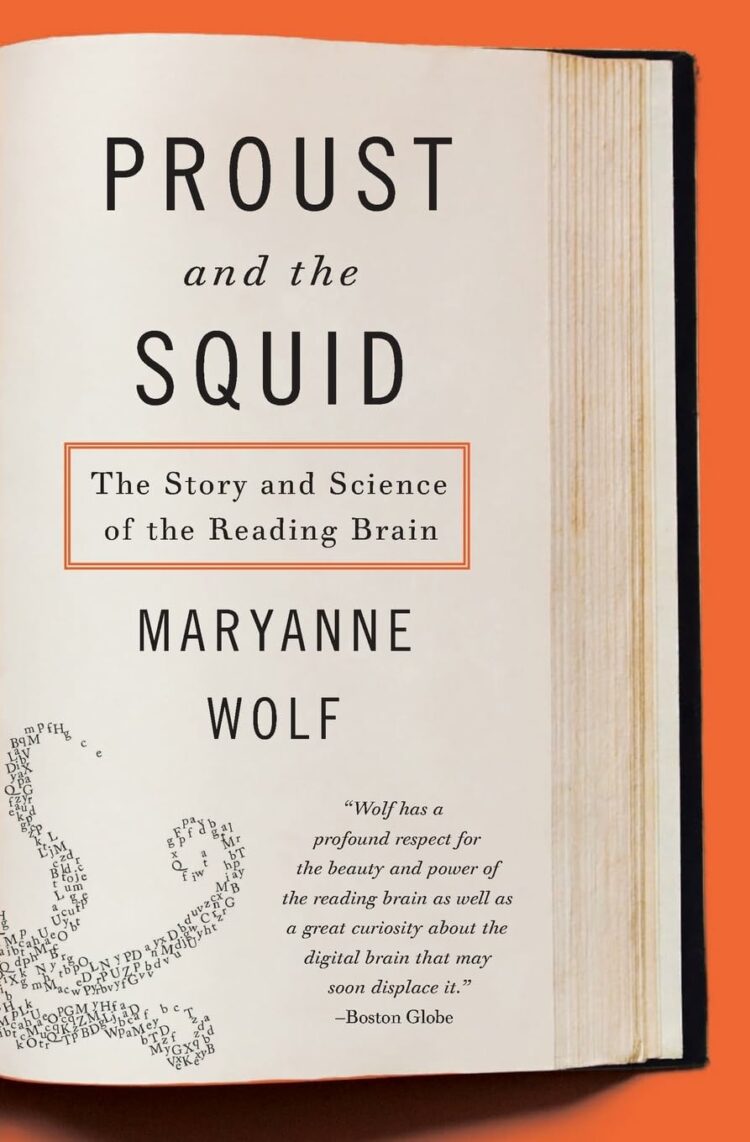
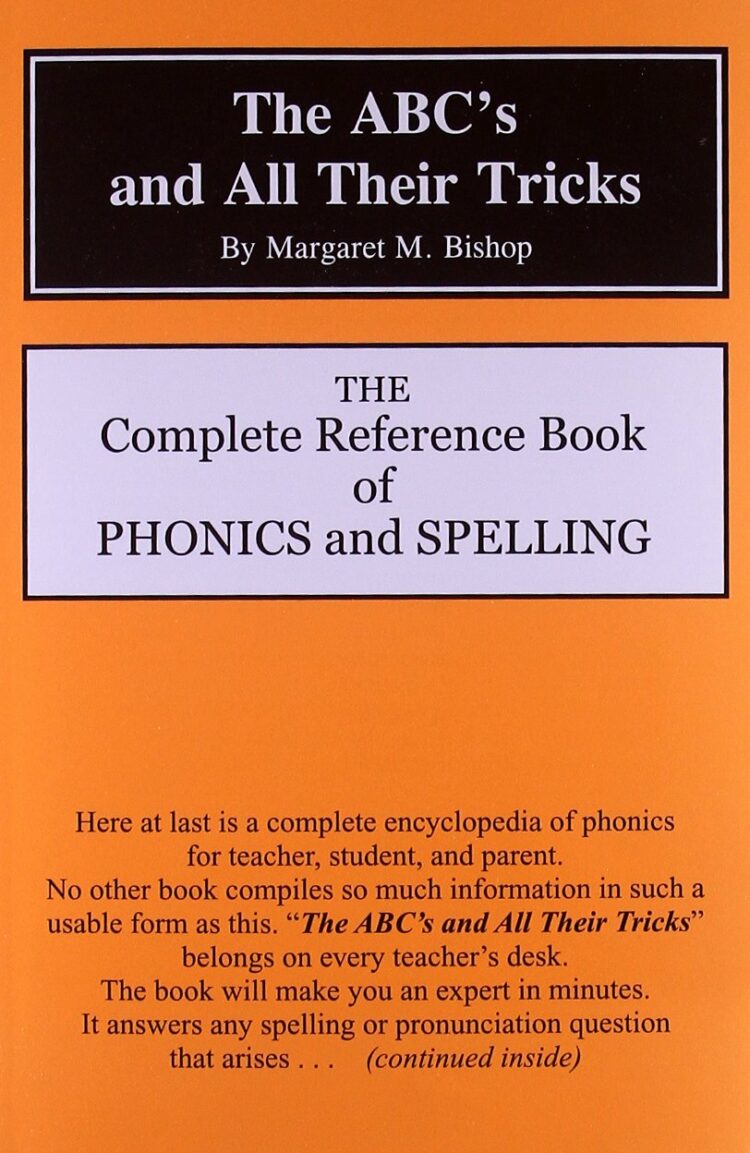
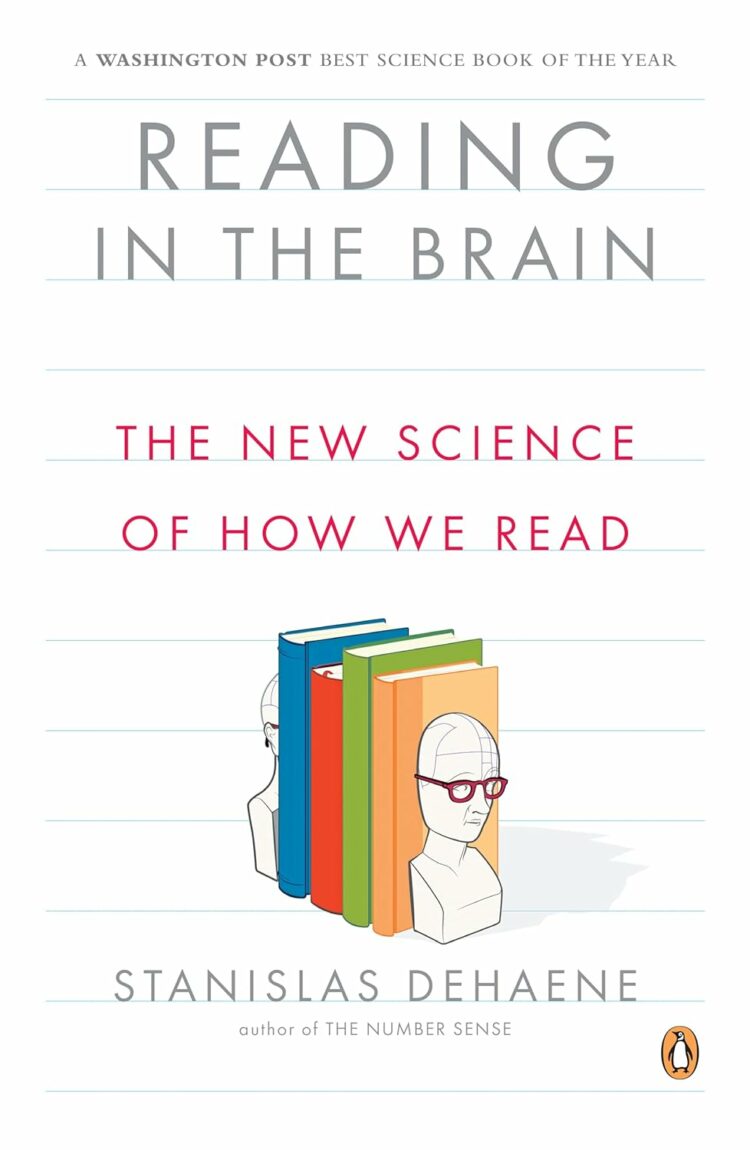
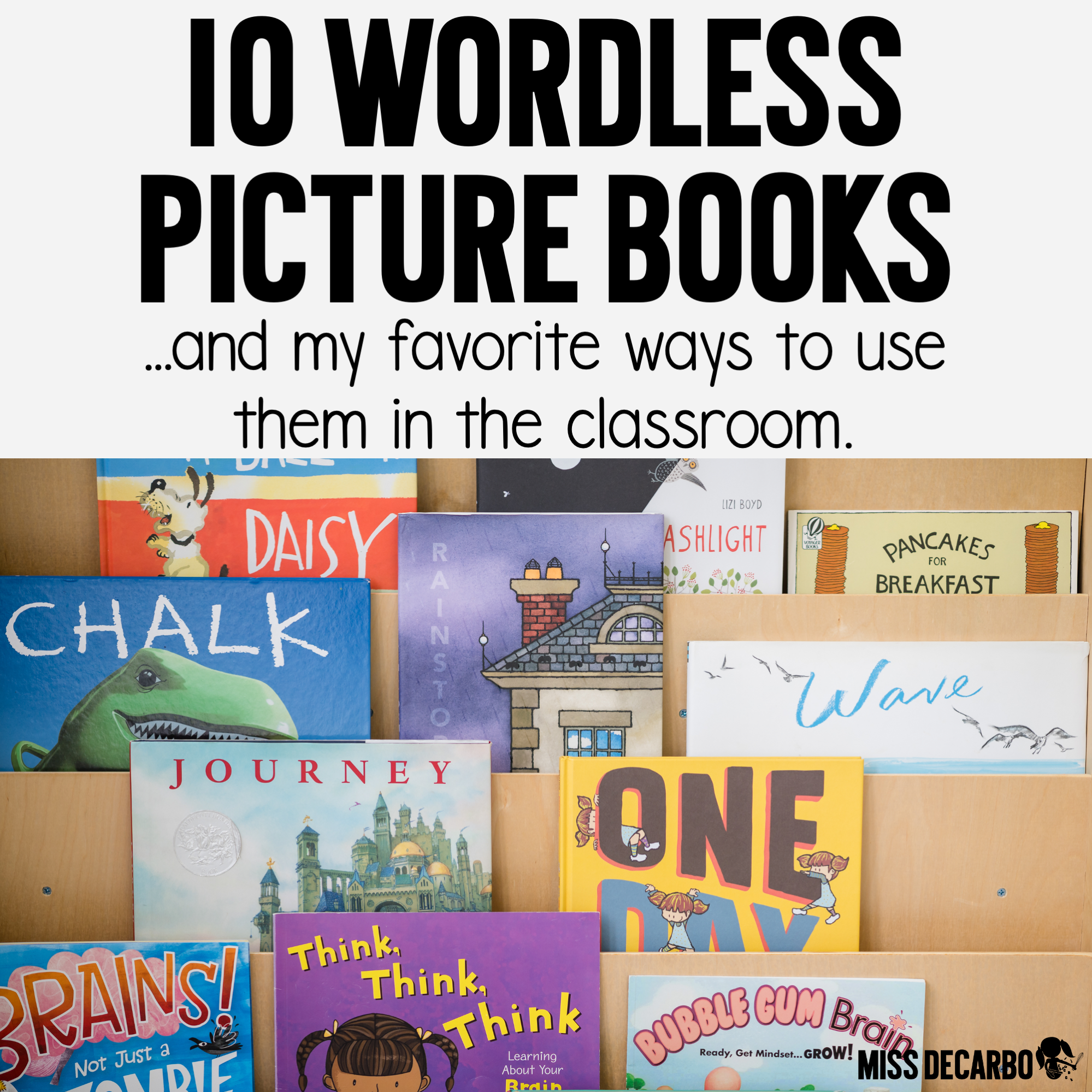
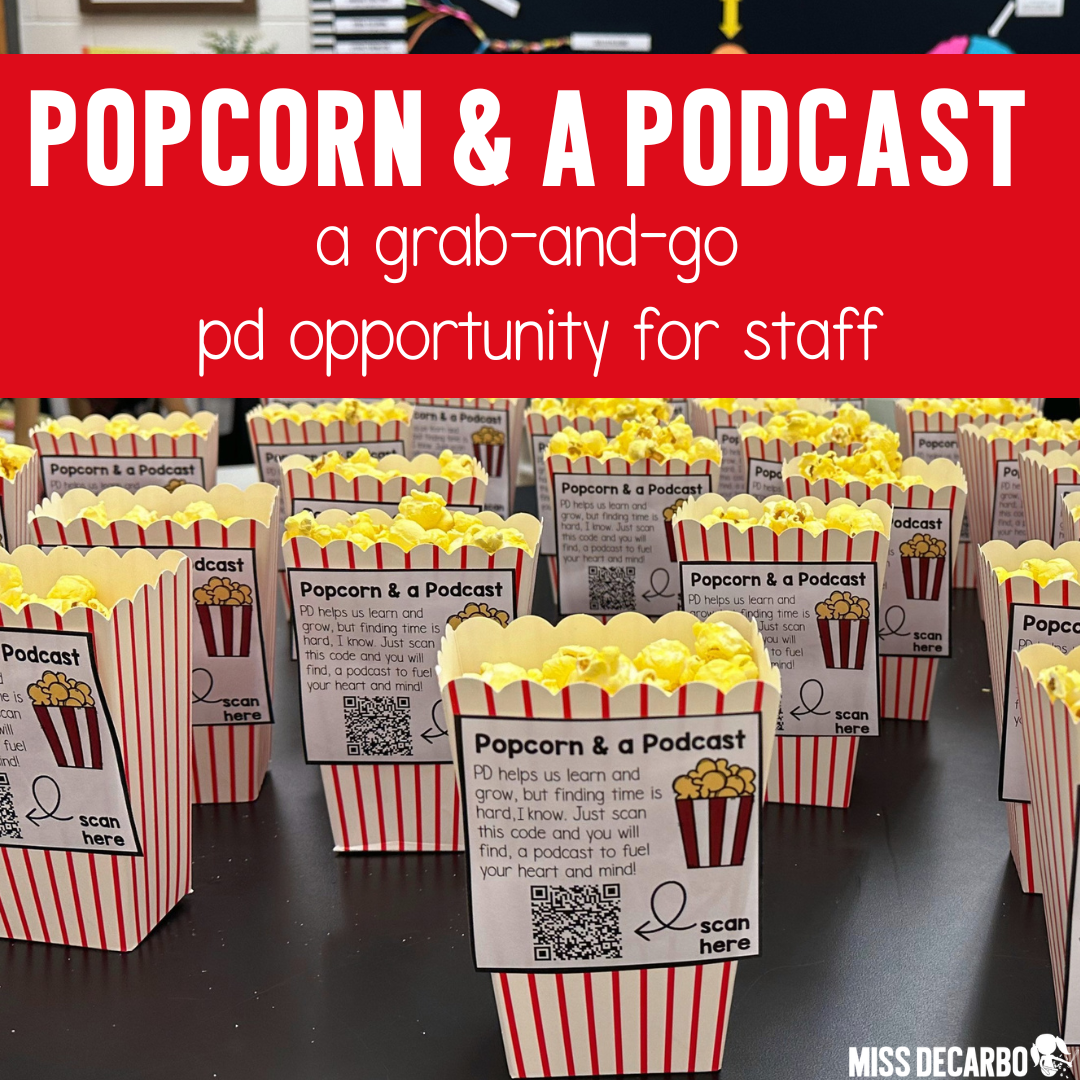
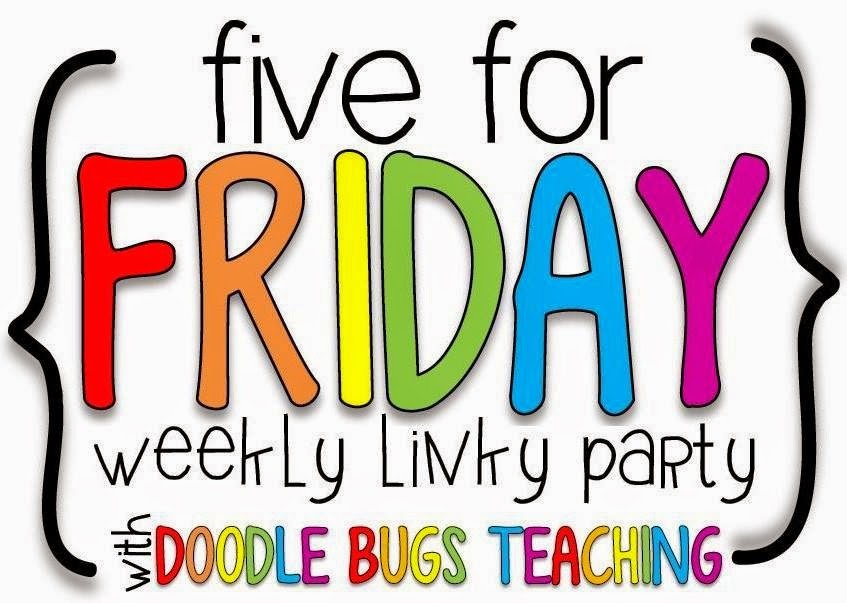

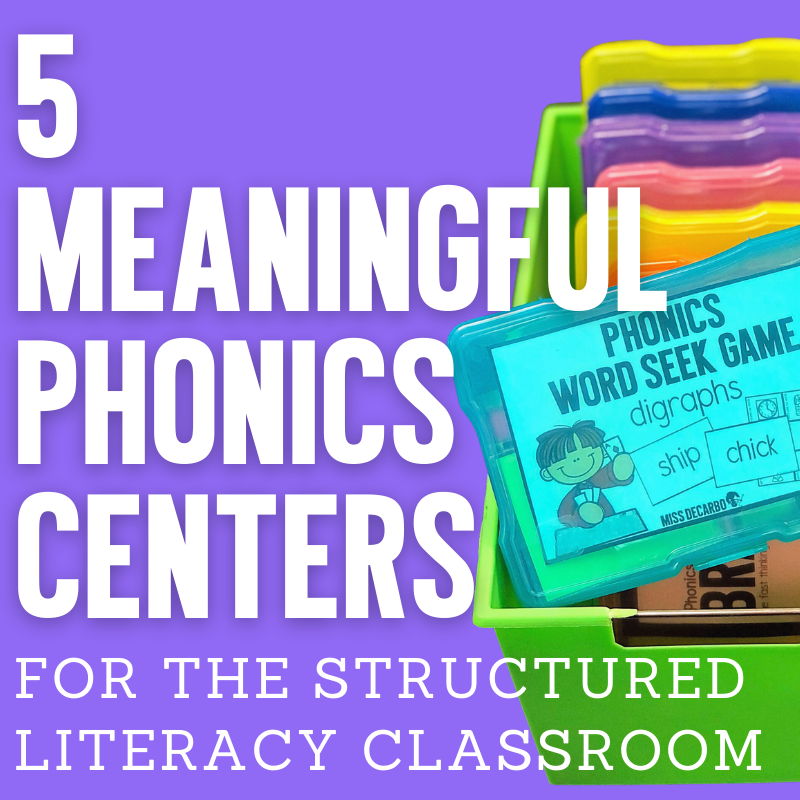
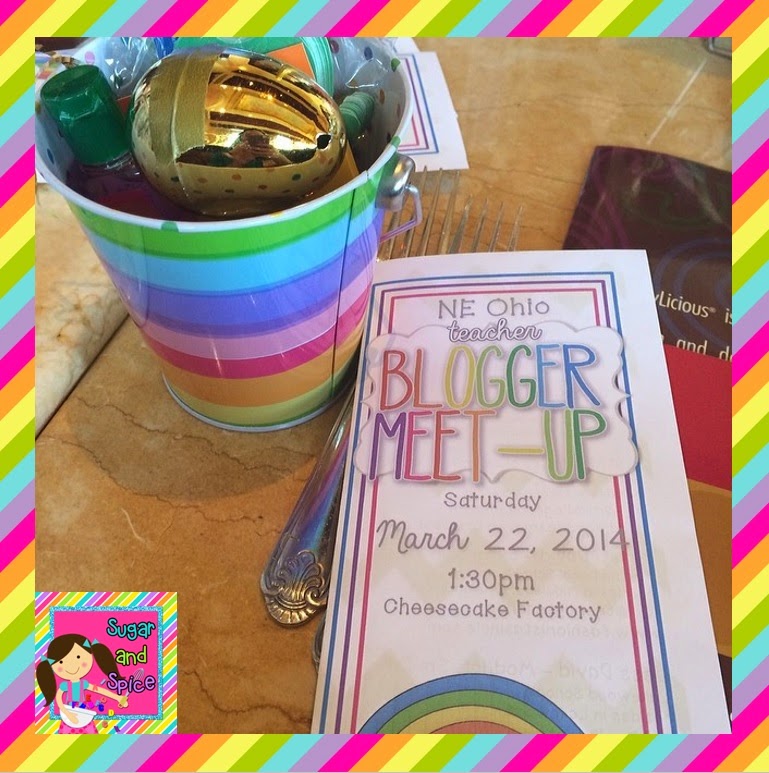
Glad to see you on board! I’ve followed your journey and appreciate the voice you have in the reading world!
Hi- Just curious about what independent work
you recommend students doing while the teacher meets with small groups. My district is still loving Lucy so we’re expected to do partner and private “reading” for extended amounts of time while we pull groups. We have moved from all guided reading groups to phonics/Fundations and Heggerty groups…I guess that’s a start.
Thank you so much for sharing your journey! I’m right there too. My college experience was long ago and focused on Whole Language. I knew back then something was missing and I went back to school when balanced literacy was the push. Finally the SOR! I appreciate you sharing the resources that have helped you learn this comprehensive approach to reading instruction.
Excellent post!